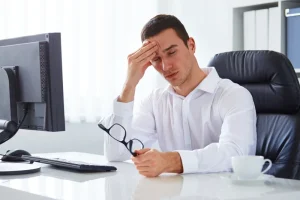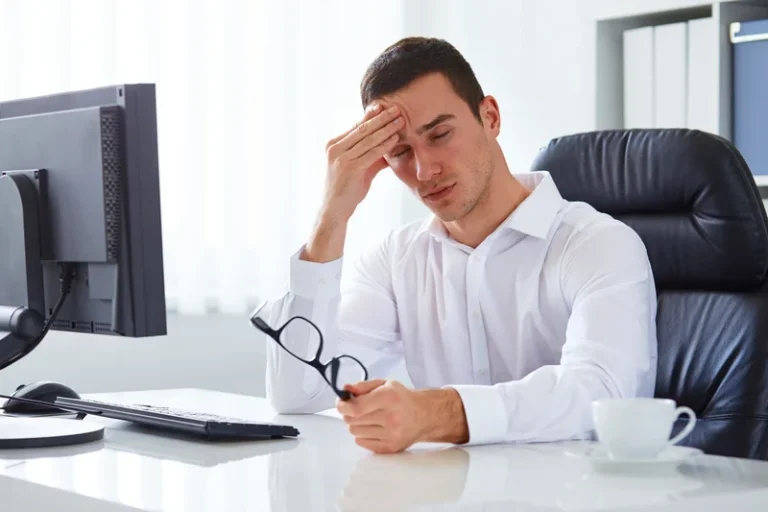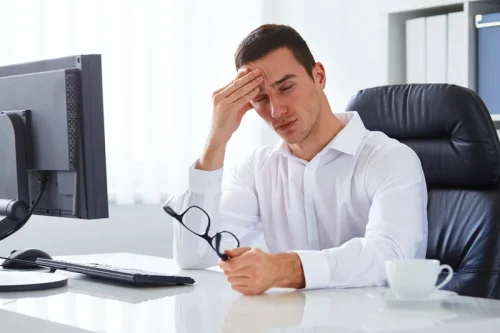
Alcohol use can impact the quality of your sleep, and research confirms there’s a link between alcohol use and insomnia. Sleep disruptions of any kind can make you feel more tired the following day. Disturbed REM sleep can also lead to impairments in the consolidation of memories, cognitive function and how you regulate your emotions. This is significant, as REM sleep – sometimes called “dreaming sleep” – is thought to be important for memory and regulating emotions. CBTi reduces symptoms of insomnia among young adults who are actively drinking — even in the absence of direct alcohol intervention. That said, if you’re drinking half a bottle of Scotch before bed then it will, of course, disturb your sleep.
Table of Content
- Ultimately, alcohol can decrease the amount and quality of sleep you get.
- But while it might be nice to unwind after a long day with a glass of wine or a beer, alcohol may not be as beneficial for sleep as some think.
- We will walk you through common questions and misconceptions about alcohol and sleep and break down what alcohol does to the sleeping body at each sleep stage.
- While it’s unlikely one alcoholic drink will have a significant impact on your sleep quality, this varies by individual and context.
- The effects both can happen right away and develop over the long-term.
Knowing she needed to function at her best while caring for patients at night, she spent a lot of time researching how to sleep well with a difficult schedule. Alcohol can contribute to the development or worsening of PLMD, a condition characterized by involuntary limb movements during sleep, leading to disrupted sleep and daytime fatigue. She does note, however, that heavy drinkers who decide to stop drinking abruptly may experience withdrawal symptoms before they start to see the sleep benefits. “Multiple factors, including how much and how often you drink, can contribute to the severity of these withdrawal symptoms,” she says.
How does alcohol affect sleep?
Dehydration can give you a headache; and pain itself can cause poor sleep. Also, getting up multiple times at night puts you at increased risk for falling. As a general rule, stick to having a drink with a gap of at least 4-5 hours before bedtime – as it takes one hour to metabolize a full glass of alcohol.

Office Hours

The result is a lot of trips to the bathroom and a (mostly) sleepless night. Anyone who’s ever indulged in a drink or two knows that alcohol can make you real sleepy, real fast. In other words, it can cause your body to dispel Alcoholics Anonymous an extra measure of liquid. Alcohol in your body inhibits the release of vasopressin, your body’s natural anti-diuretic hormone. Usually, your brain releases anti-diuretic hormone as needed to tell your kidneys to hold onto water.

In fact, alcohol is a major culprit for disrupting your night as it can interfere with the body’s chemical processes needed for sound sleep. Alcohol disrupts the crucial ‘REM’ stage, which is essential for a deep, satisfying night’s sleep. Alcohol stops you reaching this stage early in the night, meaning your body must catch-up later in the night. REM sleep is also believed to be important for the creation of memories, which is one reason why heavy drinkers can sometimes wake up unable to remember parts of their evening.

Excessive Daytime Sleepiness
If alcohol continues to disrupt your overall sleep quality, you may consider cutting it out entirely, or limiting your intake before bedtime. If you’ve stopped drinking alcohol, but are does alcohol help you sleep still having sleep issues, be sure to reach out to a sleep specialist. It’s important to treat sleep disorders such as insomnia (difficulty falling or staying asleep) or sleep apnea (when breathing stops multiple time a night) if they are present.
Alcohol just before sleep can therefore lead to decreased sleep onset latency – that is, it can make you fall asleep faster. However as the body processes the alcohol during the later sleep stages, the quality of sleep is affected and the sleep architecture is changed. When alcohol functions like a sedative, making you feel sleepy, drowsy and getting you to fall asleep faster – is it still considered bad for sleep? We will walk you through common questions and misconceptions about alcohol and sleep and break down what alcohol does to the sleeping body at each sleep stage. A hint –alcohol and sleep simply don’t mix well – read on to understand why. If you’re regularly feeling under-rested, heavy drinking may be to blame.
- Sleep apnea is a common sleep disorder that causes breathing disruptions during sleep.
- Poor or insufficient REM sleep has been linked to not only grogginess the next day, but also a higher risk of disease and early death.
- While it may take longer for sleep and circadian rhythms to return to normal in people who drink more often in higher amounts, quitting alcohol can help.
Addressing Underlying Sleep Issues
What I recommend to my clients is, you can still drink and have fun (c’mon! we need to enjoy life!) — but do it in moderation. Maybe 2-3 times a week, and drink earlier in the evening — think happy hour instead of a nightcap. The rule of thumb is you should give yourself an hour to process each drink before bed. If you have two drinks, you want to stop drinking two hours before bed.
Alcohol-induced sleep disorders
- In general, maintaining a well-balanced diet, with an emphasis on lean proteins and diverse plant foods, can go a long way to enhancing your sleep, night-to-night.
- Even moderate amounts of alcohol in your system at bedtime alters sleep architecture—the natural flow of sleep through different stages.
- As a passionate advocate for science-based content, she loves writing captivating material that supports scientific research and education.
But alcoholic sleep is at first snoring as if apoplectic; later, not to be roused. In alcoholic insomnia the patient tosses from side to side during nearly the whole night, getting only broken snatches of sleep attended with frightful dreams. Becky is a Sleep Staff Writer at Tom’s Guide covering all things sleep-related including product reviews, research studies, news and explainers.
Consuming alcohol regularly before bed can also make it more difficult to sleep, according to a 2016 study in the journal Drug and Alcohol Dependence. Researchers found that chronic or habitual alcohol use before bedtime led to bouts of insomnia. Sleep problems, such as difficulty getting to sleep, frequent waking during the night and difficulty getting up in the morning, were also more common in people with alcoholism. One study conducted at Henry Ford Health’s Sleep Disorders and Research Center found that participants who drank a high dose of alcohol before bed initially slept longer than those who consumed a low dose or none. However, when assessed a week later, those differences disappeared, and the high-dose drinkers were sleeping less and experiencing fewer minutes in deep sleep, Reffi said.